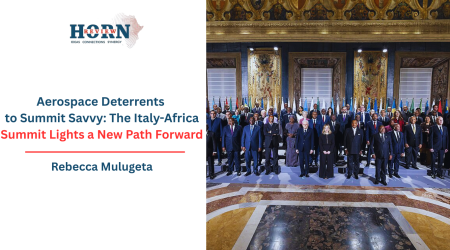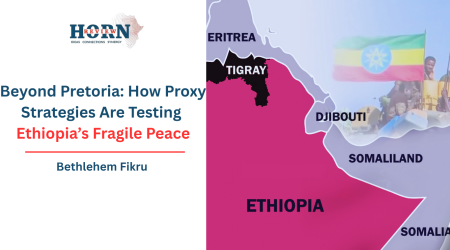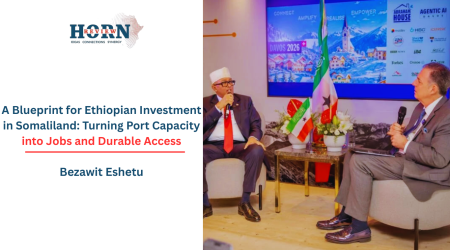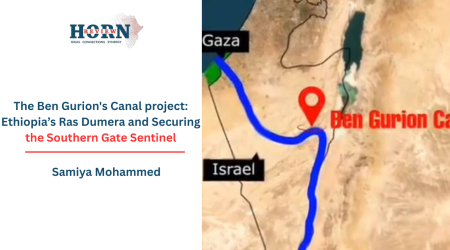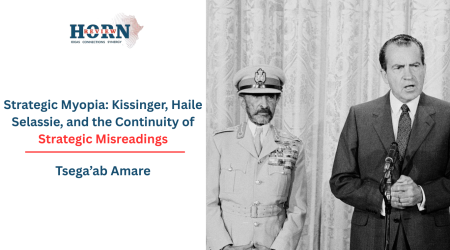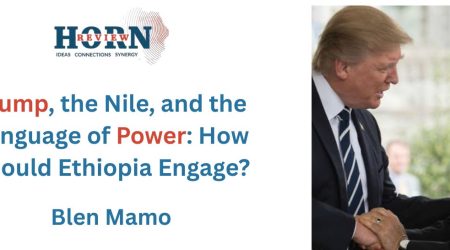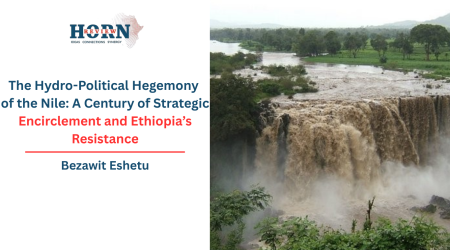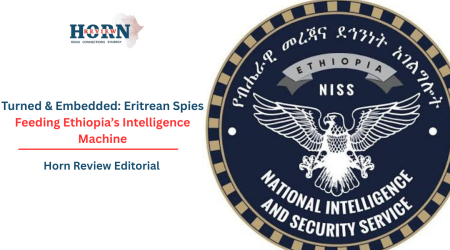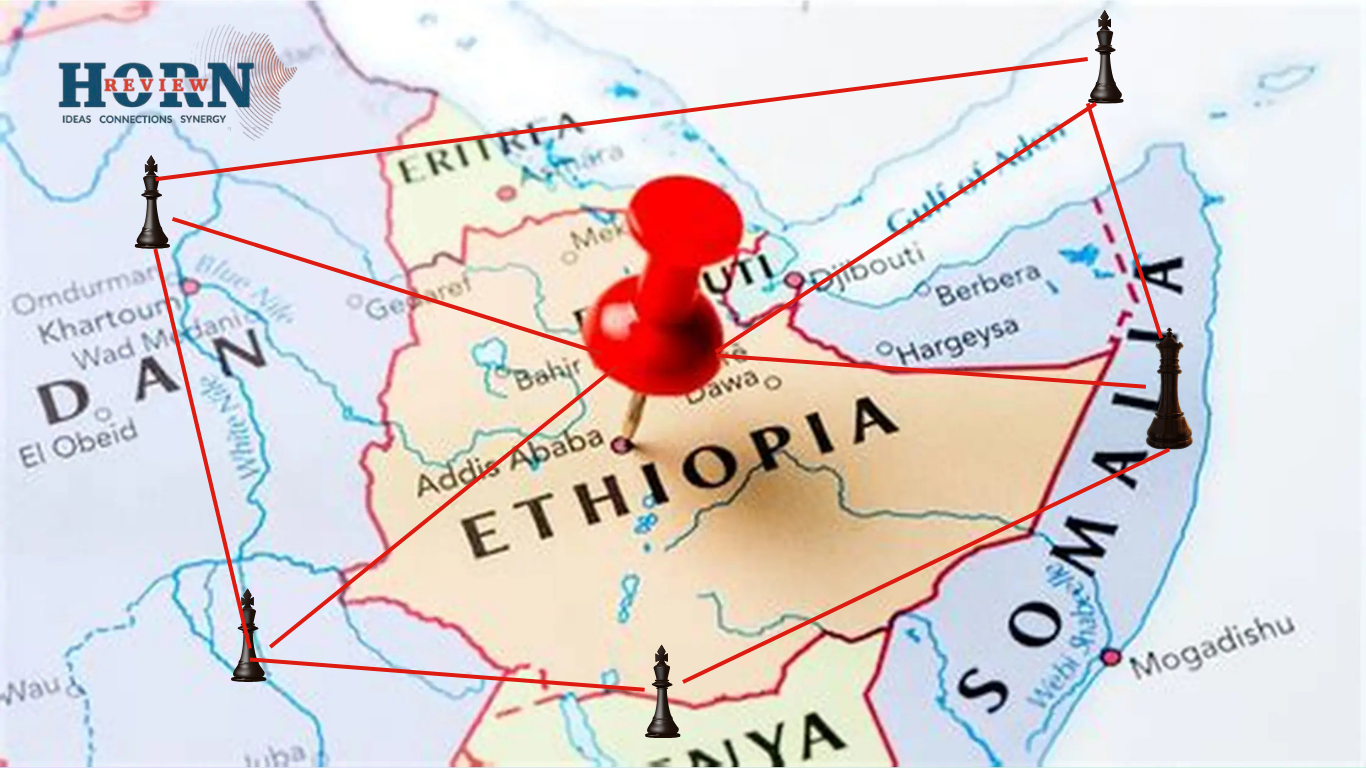
8
Jul
Ethiopia’s Expanding Diplomatic Horizon: Navigating Between Tradition and Pragmatism
Since taking office in 2018, Prime Minister Abiy Ahmed has steered Ethiopia toward a pragmatic, interest-based foreign policy. This approach focuses on engaging with various actors, including those previously seen as enemies, like the Gulf and Arab states, while putting Ethiopia’s national interests first in areas such as regional security, economic growth, and infrastructure. Instead of sticking closely to traditional allies like Russia, Israel, or China, Ethiopia is now broadening its regional influence. While this expanded engagement holds promise, it also risks pushing away long-term partners and creating uncertainty about the country’s future allegiances, especially because of its hesitation to take clear sides in an increasingly complex global dynamics.
Historical Foundations: The Pillars of Ethiopian Diplomacy
Ethiopia’s foreign policy has always been known for its emphasis on sovereignty and selective alliances. It built relationships with global powers even before the modern era, often aligning itself with Christian monarchies and at the same time resisting colonial influence. This early orientation laid the groundwork for Ethiopia’s clear stance alongside its historical allies.
While reinforcing its cultural and historical identity, ties with Israel were rooted not only in strategic military cooperation, such as the training provided by Israeli military experts in the 1960s—an effort later echoed when Israel supplied weapons, surveillance systems, and advisors during the Derg era and Ogaden War in the 1970s and 1980s—but also in centuries of historical and religious connection. Ethiopia also sustained long-standing relations with Russia, dating back to the Tsarist period, which later evolved into military and ideological support from the Soviet Union that shaped Ethiopia’s military capabilities through the 1980s during the Cold War. Despite this clear positioning, there were notable efforts to engage more broadly during Haile Selassie’s reign, reflected by his pan-African aspirations and his decision to build mosques and promote religious inclusion at home which was quietly revolutionary for the time, reflecting a broader attempt to balance Ethiopia’s image and partnerships in a changing world. Later, relations with China deepened following its first official diplomatic relation with Ethiopia in 1970 anchored in mutual interest. In no time, China was financing and constructing railways, highways, dams, and industrial parks, solidifying Ethiopia’s infrastructure backbone .
Collectively, these relationships reflect Ethiopia’s long-standing reliance on a small but carefully chosen group of allies. Rather than casting a wide diplomatic net, Ethiopia consistently prioritized selective engagement with the world: partnering with Beijing and Moscow for infrastructure and arms, then turning to Tel Aviv for intelligence and security cooperation.
Ethiopia’s Contemporary Diplomacy: Maximizing Gains Across Partnerships
As a landlocked country, Ethiopia is compelled to secure dependable overseas economic corridors, access to ports, and infrastructure that can support its growing industrial ambitions. In recent years, this has meant forming strategic ties with Gulf states, especially the United Arab Emirates, Saudi Arabia, and Qatar. These partnerships have brought Ethiopia inflows of investment, improved aviation links, and diplomatic support, often in exchange for Ethiopia’s political and strategic influence in the Horn of Africa.
These connections are not just about transactions; they show Ethiopia’s broader aim to diversify its international partnerships and lessen dependence on any single country. With 95% of its trade flowing through Djibouti, Ethiopia sees alternative access points like Berbera or Assab as crucial lifelines. In this situation, partners from the Gulf provide more than just capital; they play a role in offering Ethiopia leverage within a region where external pressures, like Egypt’s Nile diplomacy and Western scrutiny over internal conflict, can limit its options.
Critical Tensions: The Price of Overextension
On one hand, Ethiopia’s expansionist diplomacy has gained applause; on the other, it has been met with apprehension. Its new approach shows strategic maturity while avoiding excessive dependence or ideology. However, traditional allies might be concerned, perceiving a shift in allegiances toward Gulf or Western partners. Israel, which once benefited from clarity in its alliance with Ethiopia, might view Ethiopia’s growing ties with Arab nations—despite pragmatic gestures—as a reason for skepticism.
Moreover, Ethiopia’s approach may appear ideologically incoherent, risking its credibility and the confidence of its long-standing allies. At the same time, global rivalries, such as US-China tensions and Middle East polarization may trap Ethiopia in proxy rivalries, making its relationships more burdensome and less reliable over time.
Future Directions on the Diplomatic Horizon
Ethiopia’s foreign policy will likely continue to expand as it responds to economic needs, regional influence, and the changing global order. However, this wider engagement comes with a major challenge: maintaining coherence and credibility amid growing diplomatic complexity. To navigate this evolving landscape, Ethiopia must act purposefully, not just reacting to opportunities, but shaping them with a steady, principled strategy.
The first step is to strengthen its historical alliances through clear, formal partnerships that benefit both sides. Ethiopia should pursue infrastructure, security, and development goals that align with the long-term interests of its partners while preserving its own strategic autonomy. Whether with traditional allies like Russia and Israel or newer partners like Gulf states, the ties must be built on lasting strategic trust, not just transactions. Second, Ethiopia must improve diplomatic predictability. This involves clearly and consistently expressing its national priorities to reduce the chances of confusion among partners. In a world where ambiguity can be seen as opportunism, clarity is a form of strength. It should be clear to all partners that cooperation is basd on long-term national interests, not short-term alignment with global blocs. Finally, Ethiopia should actively position itself as a regional convenor rather than a peripheral participant. Issues like maritime access, transboundary water management, and regional connectivity are challenges but also platforms for leadership. Ethiopia should use its roles in institutions like the African Union and BRICS not only for representation but to guide important decisions, establishing itself as a reliable, stabilizing force in a fragmented region.
Ethiopia’s expanding foreign policy reflects bold ambition—a flexible, result-oriented shift from rigid ideological alignments. Yet the next phase of its diplomacy will not be measured by the number of partners it attracts, but by how strategically and consistently it manages those relationships. The real challenge lies in ensuring that this growing breadth does not come at the cost of depth. Through careful alliance management, strengthened domestic cohesion, and a steady foreign policy ethos, Ethiopia can navigate its multi-platform diplomacy without losing the trust of its historical allies or the focus needed for lasting, pragmatic state-building.
By Sina Yigzaw,Researcher,Horn Review
References
- AllAfrica, ‘Ethiopia: The Deepening Strategic Relations Between Ethiopia, China’ (6 May 2025).
- China Daily, ‘Spotlight: Chinese engagement in Ethiopia’s economic boom in a nutshell’ (Xinhua, 11 May 2018).
- Financial Times, ‘Israel sends arms for Ethiopia’ (7 Feb 1978).
- Global Neighbours, Sun Liangzi & Han Wei, ‘Cover Story: How a China-Built Railway Is Connecting Ethiopia to the World’ (11 Apr 2024).
- Reuters, ‘China builds space alliances in Africa as Trump cuts foreign aid’ (11 Feb 2025).
- Wikipedia, ‘Ethiopia–Israel relations’, ‘Addis Ababa–Adama Expressway’.
- Wikipedia, ‘Ethiopia’s Addis Ababa–Djibouti Railway’, ‘Adwa Zero KM Project’, ‘Wenchi Project’.
- RUDN Journal of World History, Antigegn, ‘An assessment of Ethio-China Political Economic Relations Since 1991’.

